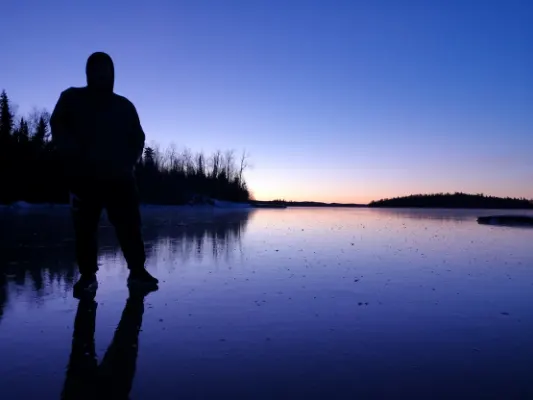
Skipping stones on ice creates a magical sound
Hearing one of winter's coolest sounds just takes a little bit of freezing.
Have you ever tried skipping rocks during the winter? The result won't be the same as doing this trick in the summer months, but the splashing leaps on the water's surface are replaced with an enchanting sound that is just as impressive.
This magically electronic tune occurs because ice is less dense than water and acts as a "highway for soundwaves" that are emitted when the rock hits the ice, explains Weather Network meteorologist Kevin MacKay.
Soundwaves travel through solids at different speeds depending on their wavelength. The solid in this situation is the frozen lake, and the larger the lake the more distance the soundwaves have to travel, which allows for more time for the soundwaves to distance themselves from each other.
When the rock hits the ice both short and long wavelengths are created, and short wavelengths transmit faster through the ice than long wavelengths. This wavelength difference is what creates the echo, and the sound becomes more crisp and sharp in bigger lakes because there is more time for short wavelengths to separate from the long ones.
This phenomenon is best experienced when a body of water first freezes and is both thin and clear of snow since snow acts as an insulator of both warmth and sound.
With files from Andrew Osmond.
Thumbnail image submitted by Mary Sapay.










